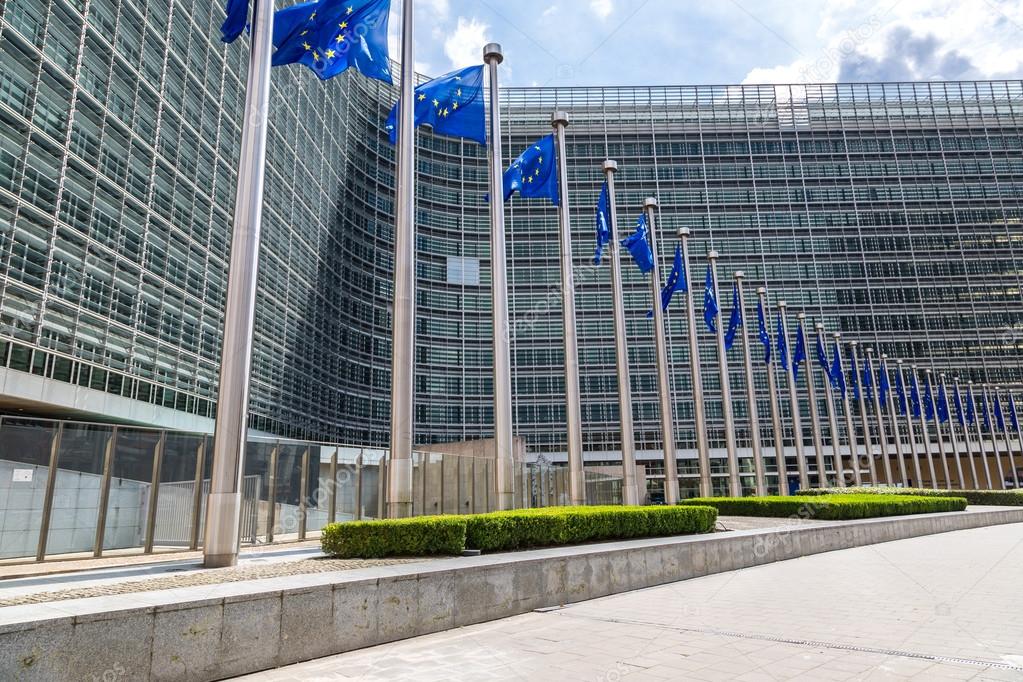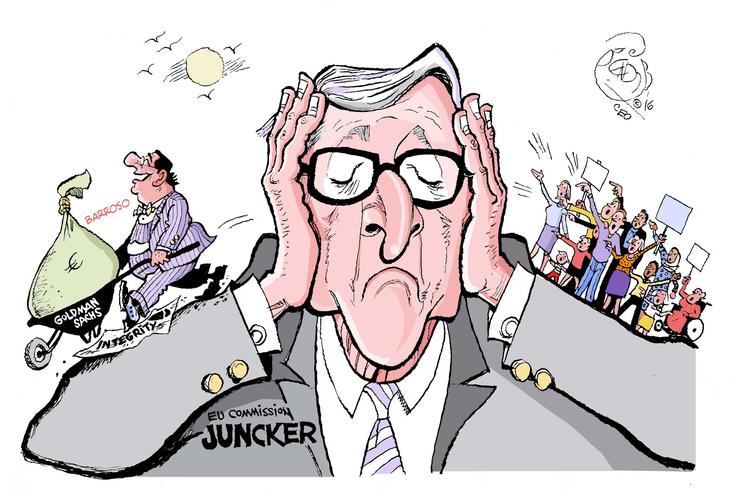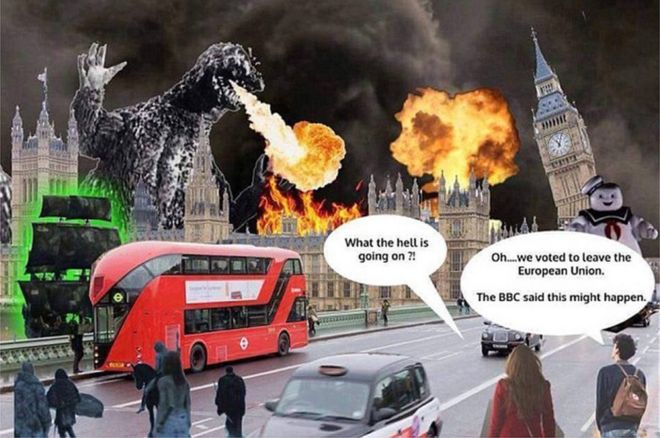The 2016 nominating conventions had recently concluded and the presidential race was hitting a new level of intensity when Paul Manafort, Donald Trump’s campaign chairman, ducked into an unusual dinner meeting at a private cigar room a few blocks away from the campaign’s Trump Tower headquarters in Manhattan.
Court records show that Manafort was joined at some point by his campaign deputy, Rick Gates, at the session at the Grand Havana Room, a mahogany-paneled space with floor-to-ceiling windows offering panoramic views of the city.
The two Americans met with an overseas guest, a longtime employee of their international consulting business who had flown to the United States for the gathering: a Russian political operative named Konstantin Kilimnik.
The Aug. 2, 2016, encounter between the senior Trump campaign officials and Kilimnik, who prosecutors allege has ties to Russian intelligence, has emerged in recent days as a potential fulcrum in special counsel Robert S. Mueller III’s investigation.
It was at that meeting that prosecutors believe Manafort and Kilimnik may have exchanged key information relevant to Russia and Trump’s presidential bid. The encounter goes “very much to the heart of what the special counsel’s office is investigating,” prosecutor Andrew Weissmann told a federal judge in a sealed hearing last week.
One subject the men discussed was a proposed resolution to the conflict over Ukraine, an issue of great interest to the Russian government, according to a partially redacted transcript of the Feb. 4 hearing.
During the hearing, the judge also appeared to allude to another possible interaction at the Havana Room gathering: a handoff by Manafort of internal polling data from Trump’s presidential campaign to his Russian associate.
The new details provide a rare hint at what Mueller is examining in the final stretch of his nearly 21-month-old investigation — and underscore his deep interest in the Grand Havana Room gathering, which ended with the three men leaving through separate doors, as Judge Amy Berman Jackson noted.
Weissmann said in the hearing that one of the special counsel’s main tasks is to examine contacts between Americans and Russia during the 2016 race and determine whether Trump associates conspired with the Russian-backed interference campaign.
“That meeting — and what happened at that meeting — is of significance to the special counsel,” he said pointedly.
The hearing was held in a closed courtroom, and only a partial transcript was released because the special counsel has argued that public disclosure of the issues discussed could harm “ongoing law enforcement investigations.”
A spokesman for Mueller declined to comment.
A spokesman for Manafort, who prosecutors have alleged breached a cooperation agreement by lying to investigators, also declined to comment. Manafort has pleaded guilty to crimes related to consulting work he did in Ukraine. He has not been accused of coordinating with the Russians to tilt the election.
Kilimnik, whom prosecutors have charged with working with Manafort to obstruct the investigation, did not respond to a request for comment.
In a 2017 statement to The Washington Post, he denied any connection to Russian intelligence. Kilimnik said the Grand Havana Room meeting had nothing to do with politics or the presidential campaign.
Instead, he called the session a “private” visit, during which he and Manafort gossiped about “bills unpaid by our clients” and the political scene in Ukraine, where Manafort had worked as a political consultant for a decade before joining Trump’s campaign.
There have long been questions about why Manafort would break away from his duties running Trump’s campaign to meet with his Russian employee, an encounter The Post first reported in 2017.
Rolf Mowatt-Larssen, a former CIA official who now teaches at Harvard University’s Belfer Center for Science and International Affairs, said that episode raises many red flags.
Manafort “goes way outside the normal bounds of behavior,” Mowatt-Larssen said.
A former senior U.S. intelligence official, who spoke on the condition of anonymity because of the ongoing investigation, called the details about what occurred at the Grand Havana Room gathering “the most interesting and potentially significant development we have seen in a long time.”
Prosecutors have alleged that among the false statements Manafort made to investigators during his interviews in recent months were key lies about the Aug. 2 meeting and other interactions with Kilimnik.
Manafort’s lawyers have acknowledged he gave incomplete and sometimes conflicting information during 12 interviews and two sessions in front of a grand jury. But they said he did not intend to lie, but was instead confused and at times forgetful.
Jackson told the lawyers she will probably rule Wednesday on whether she believes that Manafort lied to prosecutors, a decision that could impact his sentencing in March.
The Grand Havana Room meeting took place during a critical moment in the 2016 race.
Less than two weeks earlier, the issue of Russia’s role in the campaign exploded into view when WikiLeaks published thousands of emails stolen from the Democratic National Committee. Democratic candidate Hillary Clinton’s supporters immediately fingered Russia in the hack, a view later embraced by U.S. intelligence agencies.
Instead of condemning the Kremlin, Trump mockingly asked Russia to find emails Clinton had deleted while serving as secretary of state. “Russia, if you’re listening, I hope you’re able to find the 30,000 emails that are missing,” he said at a July 27 news conference.
Trump also made a series of public statements in July that appeared to echo Kremlin talking points on foreign policy. In an interview with the New York Times, he questioned the U.S. commitment to defending NATO partners from Russian aggression. Then he promised to look into recognizing Russia’s invasion of Crimea.
“You know, the people of Crimea, from what I’ve heard, would rather be with Russia than where they were,” he said in an ABC News interview July 31.
In court last week, prosecutors focused on Manafort’s choice to meet with Kilimnik in person during this period.
“There is an in-person meeting at an unusual time for somebody who is the campaign chairman to be spending time and to be doing it in person,” Weissmann said.
At the same time, Manafort was strategizing about how to use his prominent role with the Trump campaign to halt a personal financial spiral, court records show. He owed millions in property taxes and for home improvements, insurance policies, credit cards and other debts, according to documents introduced during his trial in Virginia last summer.
Manafort viewed Kilimnik — his liaison to high-level Ukrainian politicians and Russian billionaire Oleg Deripaska — as key to leveraging his unpaid role as Trump’s campaign chairman, emails reviewed by The Post show. The two were in frequent contact during Manafort’s tenure at Trump’s campaign, according to court records.
A Russian army veteran who had trained at a military language academy known as a feeder school for the intelligence services, Kilimnik had worked for Manafort since 2005, when he began serving as a translator for Manafort’s Ukraine operation.
In documents filed in court last year, Mueller’s prosecutors wrote that Gates, Manafort’s deputy, said Kilimnik told him he had formerly been an officer in the GRU, the Russian military intelligence unit accused of engineering the 2016 election interference. Prosecutors said the FBI has assessed that Kilimnik’s intelligence ties continued into 2016.
Kilimnik was also well known at the U.S. Embassy in Kiev, and officials there met with him frequently to discuss Ukrainian politics, according to people familiar with his work. During last week’s hearing, prosecutors acknowledged there was “no question” Kilimnik had been in communication with State Department officials.
Manafort told the Times in February 2017 he had never “knowingly” spoken to a Russian intelligence officer. “It’s not like these people wear badges that say, ‘I’m a Russian intelligence officer,’ ” he added.
In April 2016, Manafort emailed Kilimnik to ask if the “OVD operation” had seen the positive press Manafort was receiving for his Trump work, The Post previously reported. That was an apparent reference to Deripaska, a onetime Manafort business partner.
“How do we use to get whole?” Manafort wrote.
Kilimnik has told The Post he came to the United States and met with Manafort on May 7 to discuss business issues. Then, on July 7, Manafort emailed Kilimnik, asking him to inform Deripaska that if he needed “private briefings” about the campaign, “we can accommodate.”
A Deripaska spokeswoman has said he was never offered nor received campaign briefings. Manafort spokesman Jason Maloni also said no briefings for Deripaska took place, telling The Post in 2017 the email exchanges reflected an “innocuous” effort to collect past debts.
On July 29, 2016, Kilimnik wrote Manafort a cryptic note.
Kilimnik told Manafort he had met that day with the man who had given Manafort “the biggest black caviar jar several years ago.” The Post has previously reported that congressional investigators believed Kilimnik’s reference to “black caviar” was a code for money.
Kilimnik wrote that he and the man had talked for five hours and he had important messages to relay to Manafort as a result. Kilimnik asked when Manafort would be available to meet.
“Tuesday would be best,” Manafort responded. The following Tuesday was Aug. 2.
When they saw each other days later at the Grand Havana Room, one topic the men discussed was a peace proposal for Ukraine, an agenda item Russia was seeking as a key step to lift punishing economic sanctions, according to court records.
Prosecutors have accused Manafort of lying to them about how frequently he and Kilimnik discussed the matter — initially telling investigators he would not “countenance” the idea because he viewed it as a “backdoor” of some kind. Despite Manafort’s claim of disinterest, prosecutors said he and Kilimnik continued to pursue the subject in several subsequent meetings, including one in January 2017 when the Russian was in Washington for Trump’s inauguration.
In court, Manafort’s lawyers contended that he was candid about the discussions when reminded by prosecutors and denied that his account has been inconsistent.
There are also indications in the transcript of last week’s hearing that prosecutors have explored whether it was at the Manhattan cigar bar that Manafort shared polling data related to the 2016 White House race with Kilimnik — another topic about which Manafort lied, they allege.
The sharing of that data was first disclosed, apparently inadvertently, in a court filing by Manafort’s attorneys last month. At the time, it was unclear when Manafort passed along the information to his Russian employee — as well as the substance of the material.
During last week’s hearing, the judge devoted a significant portion of time to discussing what appeared to be the polling data — something she noted Manafort initially said “just was public information.”
Weissmann said Manafort had a motive to lie about sharing material with Kilimnik as he was running Trump’s campaign. “It’s obviously an extremely sensitive issue,” the prosecutor said, adding, “We can see what it is that he would be worried about.”
What exactly might have been shared with Kilimnik at the Grand Havana Room appears to be a matter of dispute.
On the day of the gathering, Manafort sent Gates an email asking him to print material for a meeting, according to court records. The substance of the material has not been publicly disclosed.
An attorney for Gates declined to comment.
Jackson indicated in the hearing that Gates has testified that the material was shared at the Grand Havana Room gathering. “Didn’t he say it happened at the meeting?” she asked.
“I don’t believe so,” responded Richard W. Westling, an attorney for Manafort.
Westling noted that the email Gates printed did not specifically reference Kilimnik, implying the material may not have been for the Russian. And he argued that Gates has offered inconsistent accounts and should not be believed.
Manafort’s defense team also suggested that the information was too detailed to be helpful and would have been useless to Kilimnik. “It frankly, to me, is gibberish . . . It’s not easily understandable,” Westling said.
Jackson appeared skeptical. “That’s what makes it significant and unusual,” the judge said.
As a longtime aide to Manafort, Kilimnik had experience using public surveys. In a February 2017 interview, Kilimnik described to Radio Free Europe the key role polling has played in Manafort’s political consulting.
“I’ve seen him work in different countries, and he really just does, you know, takes very seriously his polling and, you know, he can stand, you know, two weeks going through the data, and he’ll come with the best strategy you can ever have, and he’ll put it on the table of the candidate,” Kilimnik said.
It is unclear how long Kilimnik remained in the United States after the Grand Havana Room meeting.
Flight records show that a private plane belonging to Deripaska landed at Newark Liberty International Airport shortly after midnight on Aug. 3, just hours after Kilimnik and Manafort met. The plane spent only a few hours on the ground before taking off again and returning to Moscow.
Larissa Belyaeva, a spokeswoman for Deripaska, said the plane carried only members of his family.
“We can confirm that Mr. Deripaska has never lent his private jet to Mr. Kilimnik nor has ever had any interaction with him,” she said.
In the days after the meeting, Manafort’s work in Ukraine bubbled into public view. On Aug. 19, he resigned from Trump’s campaign.







 Äänestin aikoinaan sitä vastaan, enkä ole muuttanut kantaani mihinkään suuntaan. Tämäkin on toki monimutkainen asia ja aivan erityisen monimutkainen asia se on juurikin Suomelle. Siinä yhteydessä pitää pohtia jäljelle jääviä vaihtoehtoja, joista ainakin osa veisi ojasta allikkoon tai pitäisikö sanoa ohjasta allikkoon...
Äänestin aikoinaan sitä vastaan, enkä ole muuttanut kantaani mihinkään suuntaan. Tämäkin on toki monimutkainen asia ja aivan erityisen monimutkainen asia se on juurikin Suomelle. Siinä yhteydessä pitää pohtia jäljelle jääviä vaihtoehtoja, joista ainakin osa veisi ojasta allikkoon tai pitäisikö sanoa ohjasta allikkoon...





